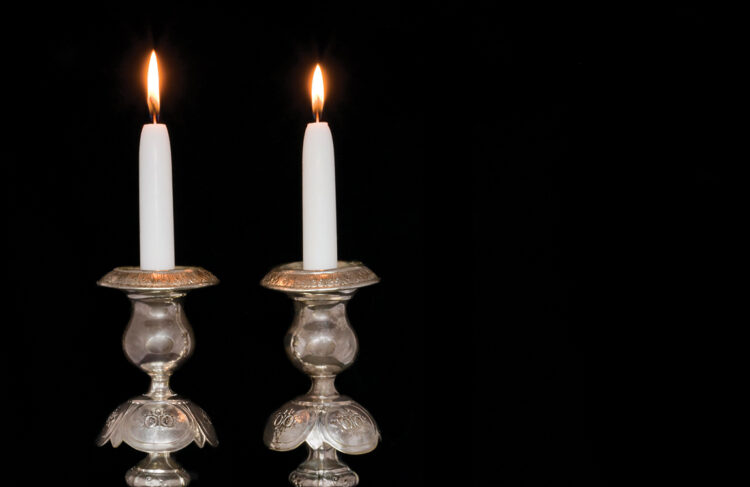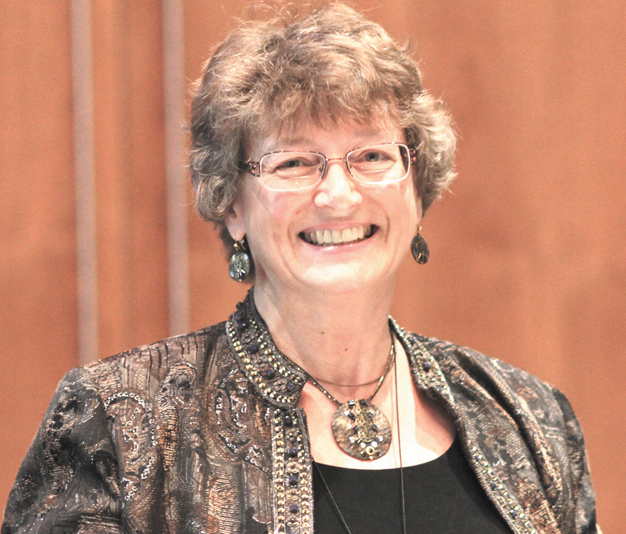Time to ‘re-soul’

Considering Creation Series
Jewish Family Education with Candace R. Kwiatek, The Dayton Jewish Observer
On Friday afternoons just before Shabbat, my daughter’s family winds up its grandfather clock. Its chimes can be heard throughout the house. Time to rise. Time to work. Time to carpool. Time to study. Time to cook.
There is an unexpected symbolism in the timing of winding up that clock as the creative work week winds down. It’s as if to say time on Shabbat is refreshed, the clock’s hourly chimes awaken only memories of a beloved grandparent’s home, not calls to action.
“The heaven and the earth were finished, and all their array. On the seventh day God finished the work which He had been doing, and He ceased on the seventh day from all the work which He had done. And God blessed the seventh day and declared it holy, because on it God ceased from all the work of creation which He had done (Gen. 2:1-3).”
On this final day of Creation, God noticeably breaks with the previous pattern. The focus is God, not the cosmos. There are no divine words and no creative works. There is neither evening nor morning, and God doesn’t conclude by declaring it all good.
Furthermore, God extends Creation’s distinctive framework of contrasts beyond the physical world into the fourth dimension, separating the time for creativity from the time for completion and fulfillment. This focus on time — God’s time — is further highlighted by a threefold repetition of the refrain, “on the seventh day.”
In another unexpected move, God confers divine favor on the seventh day through blessing, then goes one step further and declares it holy: set apart, distinct, and spiritually elevated.
That time can be sanctified is a radical notion in the ancient world, where only physical things — places, people, animals, objects — can be made holy.
No longer is holiness limited to places or people. “The meaning of the Sabbath,” writes theologian Abraham Joshua Heschel, “is to celebrate time instead of space…The Sabbaths are our great cathedrals.”

Particularly startling is biblical scholar Nachum Sarna’s observation that the Bible’s very first use of the concept of holiness is in reference to time, the seventh day.
Setting one day apart out of seven, ceasing creative work, and sanctifying time sounds a lot like Shabbat. In fact, these verses from Genesis are the opening words of the Friday night kiddush.
It’s clear this text is foundational to Shabbat, even though it doesn’t appear as a specifically Jewish institution until Moses at Mt. Sinai.
What may be less clear is just how much contemporary wisdom for everyone is concealed in this text.
Creation is both active and reflective. For six days, God engaged in creating the universe. On the seventh, God ceased working, recognizing that the work of Creation was fulfilled.
We should also regularly stop work on our creative tasks to reflect on their purpose, direction, and status.
Work isn’t everything. Even God ceased creating in order to reflect, refresh, and “re-soul.” We can learn from God’s actions that our own creative work isn’t the sole purpose of life. Humans, like God, have value even when not producing.
We are not gods. For one day a week, the Sabbath is a reminder that we are dispensable to work and the world, but not to our families, community, and God.
We begin to think that we are godlike and must remind ourselves of our true significance. “Shabbat is the antidote to the tendency toward self-idolatry,” writes Dr. Laura Schlessinger. “On this day, we are reminded that God is God.”
One in seven. We live in an action-oriented world. There always seems to be something to do and no time to rest.
So God established a built-in time to stop the action, blessed it, designated it as holy, and was the first one to take part.
The seventh day is about freedom. We are creative beings. We are not slaves to creating. We are in charge of each moment. We are not slaves to time.
The seventh day is about “re-souling.” The popular Friday evening prayer V’shamru (Ex. 31:16-17) ends with the words, “For in six days The Lord made heaven and earth, and on the seventh day God ceased from work and was refreshed/vayinafash”— literally re-souled.
There’s a purpose to being human. A day each week with no creative work on the agenda can encourage us to ponder: “What am I alive for? What did I produce all these things for? What am I doing of value in the world?”
A traveler making a long trek in the jungles of Africa had engaged some local tribesmen to carry the loads.
The first day they marched rapidly and went far, and the traveler anticipated a speedy journey.
But the second morning, the tribesmen refused to move, just sat and rested. When asked, the traveler was told they had gone too fast the first day and they were waiting for their souls to catch up with their bodies.
When God finished Creation, the seventh day was an opportunity to redefine both self and goals. We should see every seventh day, every Shabbat, as such an opportunity: to reflect and redefine as necessary.
Literature to share
And a Cat from Carmel Market by Alyssa Satin Capucilli. Bubbe goes to Tel Aviv’s outdoor market to shop for Shabbat dinner. But along with the challah, candles, and carrots, she brings home a few extra guests. What to do? This delightful rhyming book offers young children a peek into an Israeli shuk (marketplace), invites them into the rhythmic preparations for Shabbat dinner, and introduces the notion of welcoming guests, no matter who. Delightful illustrations, great content, and a fun read for preschool and primary ages.
The Yellow Bird Sings by Jennifer Rosner. It’s 1941 when Roza and her musically gifted 5-year-old daughter flee the German invaders to hide in a neighbor’s barn. Through whispered memories, stories, and music, they pass the time until the invaders come again. This highly-acclaimed debut novel weaves together tales of hidden children and resistance fighters, the power of imagination and memories, and a mother’s love for her child. Both heartbreaking and uplifting.
To read the complete June 2021 Dayton Jewish Observer, click here.


